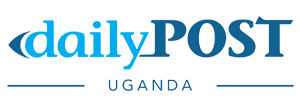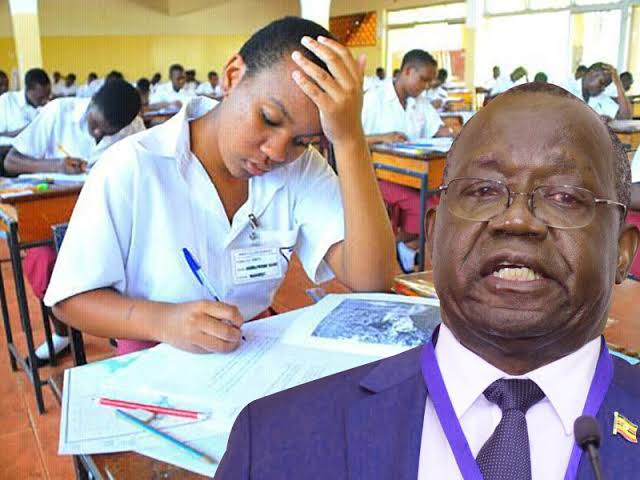KAMPALA: Following recent media reports that some schools buy national examinations to enable their pupils and students pass with high grades, a top official from Uganda National Examinations Board (UNEB) has come up to say that it is not a policy for the agency to cheat exams for schools even though he added there is a need to investigate the allegations of exchange of examinations for money.
“It is true that allegations are out there in the mainstream media and social media that some UNEB officials get money from some headmasters to release potential national exams papers. However, this is a question of ethics on the part of some of our staff. It is not a policy of UNEB to sell exams to schools and any staff found to be involved in selling exams must face the wrath of the law,” the official who preferred to remain anonymous for she is not allowed to speak to the press on such matters, said.
UNEB boss Dr. Dan N. Odongo couldn’t respond to our calls and text messages even as he told us to text him. “Please text me,” he sent our reporter the message yet he couldn’t respond to queries raised for him to answer. In Uganda, most public officials don’t want to respond to journalists’ questions, yet this gives the officials a chance to give their side of the story on matters of concern.
However, another source within UNEB told this news website that the national examinations institution has received complaints from some schools regarding the selling of exams to certain schools at primary and secondary level. “Yes I can say that we as UNEB have received complaints from some schools and individuals that some schools buy examination papers to coach their students,” he said, adding that a committee is likely to be formed to look into that matter.
He added that allegations of cheating in the national exams tarnishes the good image of UNEB and its mother ministry- the Ministry of Education and Sports. “Investigations should really establish the truth if UNEB is to be trusted by Ugandans,” he said adding that there should be a mechanism of following up pupils and students who score the highest marks to see if they indeed passed on their own.
“In my former secondary school, the administration had a keen interest in students who were admitted with aggregates ‘4’ and indeed some were found wanting and were expelled at the end of first term after registering very poor marks,” he said, adding that the business of teaching pupils and students how to pass exams is dangerous to the learners.
Background
After the release of 2020 PLE results there was concern that Hillside Nursery and Primary School, Naalya, came out as the best performing primary school in the country with over 130 candidates scoring ‘4s’. Yet the same school could only manage 22 ‘4s’ in 2019.
Some Ugandans think Hillside Nursery and Primary School bought examination sets from some corrupt UNEB officials for its pupils to revise, which put other schools at a disadvantage.
It should be noted that in 2020 PLE Hillside Nursery and Primary School, registered 133 candidates with aggregate ‘4’ out of the 642 ‘4s’ registered throughout the country, while Hormisdallen Primary School, Wakiso, which was second, had a total of 98 ‘4s’ yet it had just above 10 ‘4s’ in 2019 PLE examinations. How the two schools achieved the highest aggregate ‘4’ scores in 2020 remains a mystery to their peers.
Out of a total number of candidates that scored aggregate ‘4’ countrywide, the two schools alone raised 229 ‘4s’, posting a combined score of 35.6 percent. Does this mean other schools 14,298 of 14,300 schools that participated in 2020 PLE didn’t teach their primary seven pupils well as they shared 64.4 percent? Also consider the fact that a total of 749,761 candidates registered for PLE in 2020 compared to 695,804 candidates in 2019.
About 50 primary schools in Kampala and Wakiso have appealed to UNEB to remark their pupils as they don’t believe they performed poorly. The appeals process closed last Friday. “We think that we were under marked. We finished the syllabus as expected. Some schools are teaching exams but not full syllabus,” said a headmaster from one of the traditional government-owned primary schools.
“The total number of candidates that scored aggregate 4, from the 26th to the 141st school, in this category, in comparison with the aforementioned schools, is way, too below, as it only stands at 185, representing a percentage score of 28.8%,” argues an analyst, urging UNEB bosses to look into the matter.
Comparison with 2019 PLE results raises more questions about Hillside 2020 PLE performance
Out of the 479 registered ‘4s’, in the 2019 PLE results, the two schools, that is, Hillside Primary School, Naalya and Hormisdallen Primary School, Wakiso, registered only 33 4s, of which Hillside had 22 and Hormisdallen 11, adding up to only 33 ‘4’s as already indicated out of the countrywide total number of candidates with aggregate ‘4’. “This represents a percentage score of 6.1%, as compared to the 35.6% percentage score of the two schools in the 2020 results,” says an analyst, who says there is foul play somewhere within UNEB officials in connivance with school administrators and headmasters.
A source within UNEB told this news website that UNEB officials who run the printery at Kyambogo connive with school administrators and headmasters where hundreds of millions of shillings is given to UNEB officials to release set examination sets for instance, for PLE. “There is a gentleman at the printery at Kyambogo who sells PLE examination sets to private primary and secondary schools,” the UNEB source told this news website, adding that UNEB top bosses sit at the agency’s headquarters in Ntinda so they find it had to supervisor those running the printery at Kyambogo.
UNEB punishing small rural schools as scapegoat
Another source within UNEB said that the officials there who are involved in selling examination sets as well as investigations intentionally withhold results of small rural schools as a scapegoat to hoodwink the public that indeed they are serious at doing their work. “Why can’t they withhold results of Hillside Primary School to see if all those pupils who got ‘4’ deserved that score,” he said, adding that, “It is an irony for UNEB officials to go for small schools in rural areas and leave out big ones that cheat through buying PLE examination sets.”
Need for govt to begin tracking performance of students in higher classes
A section of concerned members of the public who are not convinced with the good performance of candidates who rely on revising exams are of the view that government through the Ministry of Education and Sports begin tracking the performance of the pupils in next classes so as to establish whether they are indeed sharp as portrayed in PLE, UCE and UACE examination results. “A certain school in Kampala has had issues with pupils admitted with “4” aggregates. They end up performing poorly in academics. They are spoon-fed.”
A teacher in a powerful government primary school, while commenting Hillside’s results said: “We are as qualified as teachers of Hillside Nursery and Primary School. We are supposed to teach and complete the same syllabus on the same time. For Hillside to have over 130 “4s”, there is need for an inquiry.”
A senior official in the Ministry of Education’s primary education section when contacted to comment on the performance of Hillside Nursery and Primary School in 2020 PLE examinations said: “We are also wondering whether that school’s performance is genuine.”
Hillside, for example, registered 57 candidates with aggregate 4, in 2018, 22, in 2019, and then, all of a sudden, 133, in the just released PLE results, which calls for serious scrutiny.
It is not only primary schools involved in buying national examination sets for their candidates. Many secondary schools in Kampala and Wakiso are also culprits. This news website will not for now mention such cheating schools. That means UNEB has to be tough on its workers who sell exams to some schools. This is the only way that the agency will redeem its image, said a concerned teacher.


